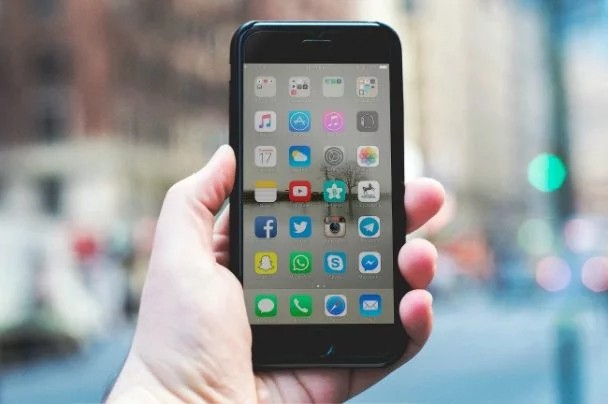Just How Accurate Are Personal Healthcare Apps Anyway?

Smartphones are amazing tools that we can use for just about everything, from banking and email to investing money or running a business.
Up until recently, medical diagnostic tools were a glaring omission from our favorite smartphone app stores. However, thanks to the powerful technology of the latest mobile devices, many applications of this type have begun to appear that stand a good chance of complementing more traditional diagnostic processes from trained medical professionals.
But how accurate are these apps, really? Could they potentially one day replace labs or doctor’s office visits for minor issues?
Current Medical Apps
Right now, you won’t find a lot of diagnostic potential in your app store. Most medical apps available right now focus on information, rather than diagnostics. You can find plenty of apps to help you determine if there are potential drug interactions between your medications, or whether or not a rash will require a trip to the doctor, but the diagnostics are best left to the professionals.
Recently, there has been a push toward the creation of medical apps that help to provide information that you would usually have to go to a doctor to receive. What new apps are offering this kind of information?
No Substitute
These new apps and their related accessories are fantastic tools for users to help monitor and maintain their heath without having to schedule a doctor’s appointment. But when it comes down to it, there’s no replacement for the expertise of trained medical professionals.
Just this year, a medical startup called Theranos began to market blood tests that only required a couple drops of blood taken from a fingertip, rather than the traditional vials taken directly from a vein. Unfortunately, the concept outpaced the available technology, and it was found that these blood tests were inaccurate, sometimes dangerously so.
Many tests still require access to specific equipment and must be conducted by a trained professional, and a medical app is no substitute for the skills and knowledge of a medical professional.
Concussion Detection
A knock to the head almost always necessitates a trip to the ER, or at least a visit to your family doctor, but a new app from a Perdue-based startup might change that.
The app is called Collide, and it was produced by Brightlamp, LLC. It purports to utilize the phone’s camera and LED flash to analyze pupil reaction in the event of a head injury, to determine if any concussion symptoms are present. According to the patent information, the app would be able to analyze the pupil in five to 10 seconds and offer a diagnosis in 30 seconds.
Unfortunately, there isn’t much information available at this time, and the app won’t officially launch until May, 2017—provided the patents are approved in a timely fashion. If it proves to be an accurate app, though, it could do a lot of good for a lot of folks. Early diagnosis of a concussion is essential for securing proper care, so being able to diagnose a concussion at home with something as simple as an app could become an essential tool.
Fertility Testing
Fertility apps are nothing new, but almost all of them are targeted toward female users. Most of these apps are designed to help women track their ovulation and fertile cycles to determine the best days to have sex with the intent to conceive. While some apps have started adding support for men to add their information as well, an app called YO is working on changing the game.
YO, when paired with a clip-on for the phone, enables male users to test their fertility by analyzing a sperm sample in the comfort of their own home. The kit includes everything needed to take, prepare and analyze a sample utilizing a smartphone. There’s even a sperm-based quiz you can take while the sample rests.
If the app detects a problem with the sperm cells, the information can be taken to a doctor to determine the best course of action. It’s a great tool for anyone who’s concerned about their fertility but doesn’t want to broach the subject with their doctor.
Cardiac Health
More than 600,000 people die from heart disease every single year in the United States alone, so the utilization of applications and mobile accessories for heart health could potentially save lives across the country.
An app called Kardia, when paired with a small accessory, enables users to turn their smartphone into a mobile EKG machine to check heart rate, palpitations and other heart-related symptoms. Kardia is approved by the FDA, which speaks to its accuracy, but as with any tool, accuracy largely relies on the user.
Huge Potential
When paired with different accessories, smartphones can also be used to take blood pressure, monitor pulse and blood oxygen levels, and record all of this data for use later by users or medical professionals.
The world of medical diagnostic apps for smartphones is just in its infancy, and will grow and develop as both smartphone and medical technologies advance even further in the future. These apps will increase in accuracy and will likely become indispensible tools for both patients and doctors in the coming years.


